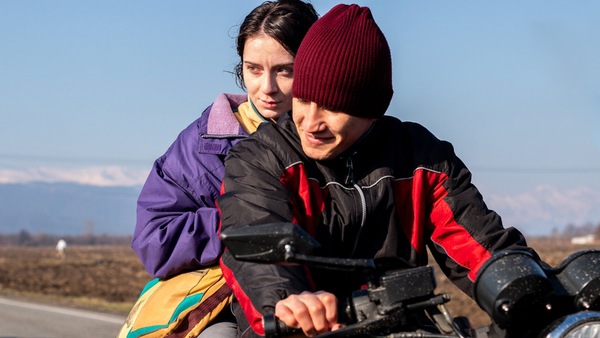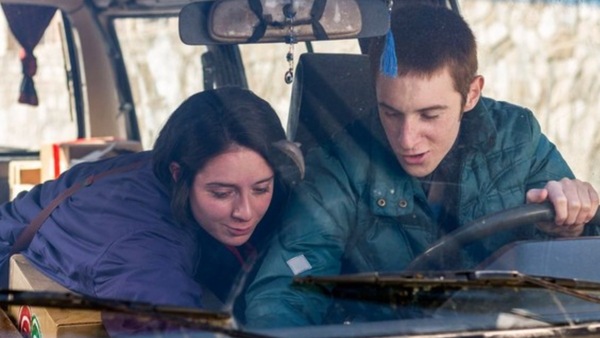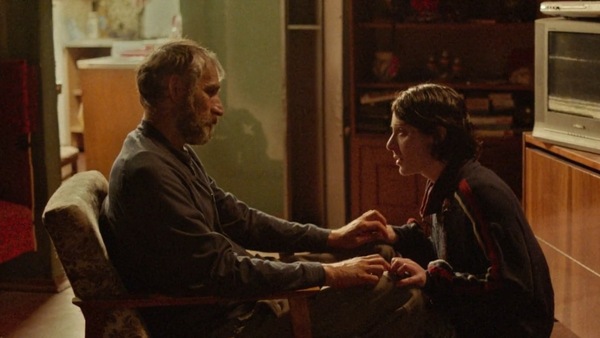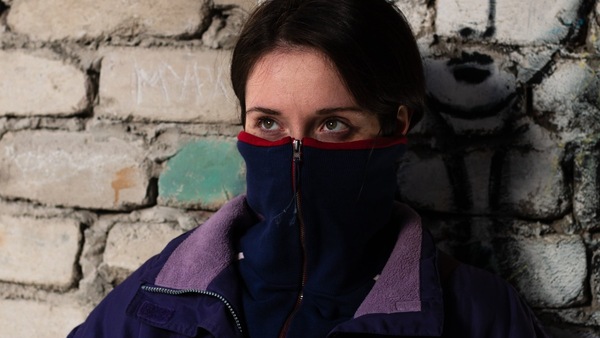Unclenching the Fists review: A young Russian woman’s quest to smash the patriarchy
Streaming on MUBI, Russian filmmaker Kira Kovalenko’s award-winning film Unclenching the Fists documents the blustery turning point between oppression and freedom

Milana Aguzarova and Khetag Bibilov in the movie
Last Updated: 02.46 PM, May 28, 2023
STORY: In a remote Russian mining town, a young woman struggles to escape the clutches of her tyrannical father, while she shares a strong bond with her brothers.
REVIEW: Masked in a rather broody colour palette, Russian filmmaker Kira Kovalenko’s grim family drama Unclenching the Fists - which was honoured with the Un Certain Regard award at Cannes 2021 - weaves a tumultuous tale of patriarchy and the trauma it causes. This is the story of a young woman, named Ada (Milana Aguzarova), who lives in a dilapidated apartment in the dusty mining town of Mizur, located in Russia’s North Ossetia, with her sick yet tyrannical father Zaur (Alik Karaev) and a clingy brother Dakko (Khetag Bibilov).
Zaur is unreasonably possessive about Ada. Among the house rules are - she has no access to her passport and other IDs; she cannot wear any fragrance; she cannot grow her hair; and she is not allowed to step out of the house after sundown. He keeps the front door locked after everyone’s home in the evening. Zaur mostly drives her around in his old banger, denying her even basic freedom.

Ada, however, manages to steal a few moments here and there, as she indulges in flirtations with a local supplier Tamik (Arsen Khetagurov) and hangs out with her friend Taira (Milana Pagieva) at a nearby shop. Dakko, on the other hand, cannot seem to stop childishly irritating his elder sister. Literally living under the thumb of her father, she couldn’t even go for a surgery to correct injuries sustained when miscreants took her hostage during school days, meaning she has been wearing adult diapers for several years.
Then one day, her elder brother Akim (Soslan Khugaev), who lives in Rostov, suddenly shows up. Aware of his father’s oppressive nature, Akim is here to sort things out, so much so that he even promises to get her treated and allow her to “be whole” as she desires. That said, he doesn’t want to abandon his ailing father either.

Amid all the tenderness and timidity, Ada shows unflinching strength and steely determination to break free from the domineering men in her life. Although mostly unsettling, the siblings show an inherent urge to help each other. And if you care to read into the narrative, there is also a visceral and unwavering feminist voice throughout the 97-minute film. It’s a piercing tale of how conflict within oneself eventually finds a voice.

VERDICT: Although the performances are mostly tight-lipped and kind of stifling, Milana and Soslan manage to dish out dazzling characters. Tamik could have done a bit more than just hovering around Ada and racing his vehicle in circles. But looks like that could be a deliberate move by the director, who probably wanted to portray that men do not always deliver what they promise. Dotted with uneasiness, pent-up anger and never-ending despair, the movie flags the perils of patriarchy in a subtle yet hard-hitting tone.
WHERE
TO WATCH
Subscribe to our newsletter for top content, delivered fast.

